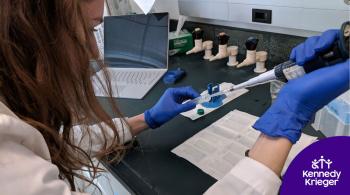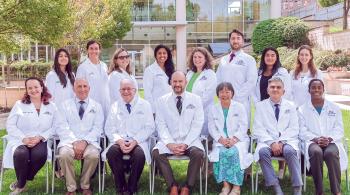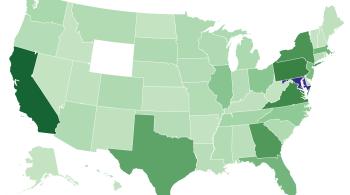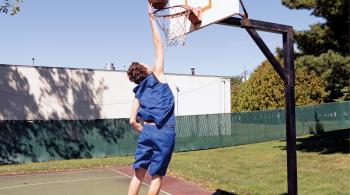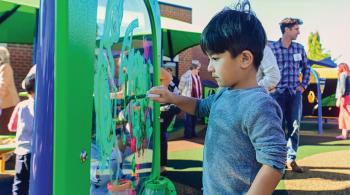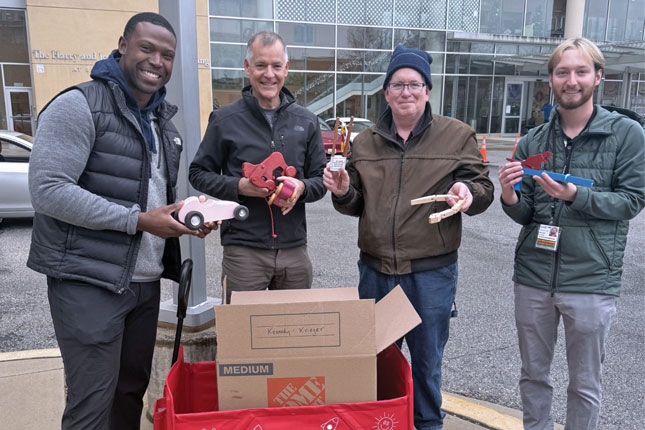
Woodpeckers Guild members
Tom Blinka and Abe Goldstein (center left and right),
along with Darryl Williams (far left) and Kyle Zimmerman (far right)
of the Institute’s Office of Philanthropy, prepare to give toys
made by members of the guild to patients at Kennedy Krieger.
By Jessica Gregg
For a group of dedicated Baltimore-area woodworkers, toy-making season begins soon. Since the late 1990s, the Woodpeckers Guild has made and delivered wooden toys to seven local organizations, including Kennedy Krieger, just in time for the December holidays. The woodworkers get started as summer ends.
“We ask each person to make seven toys, because we donate to seven places,” says Robert Weber, the guild’s toy drive chairman. “And we get anywhere from seven to 35 toys from each woodworker because some guys go crazy.”
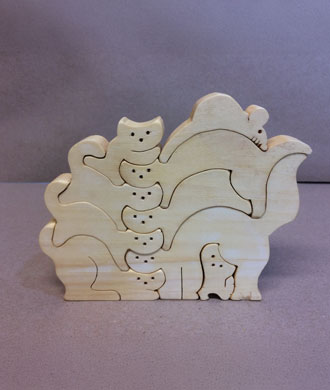
A wooden cats-and-mouse puzzle
The handcrafted toys are sturdy and colorful, with obvious kid appeal—past donations have included yellow-wheeled elephants to push across the floor, a wooden puzzle of cozy cats (and one mouse) nuzzled together, and a purple and green train ready for a journey.
“They’re old-school wooden toys,” Robert says.
Eight years ago, Robert took over as toy drive chairman, and since then, the guild has created and delivered more than 5,600 toys. It’s satisfying work, he shares, in part because his daughter received rehabilitative services at Kennedy Krieger as a teenager, after she was injured in a car accident.
“For me, it’s personal. I like running the toy drive, because I’ve got a connection,” he explains.
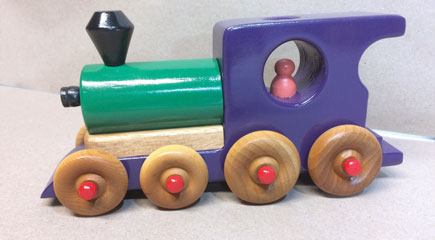
A toy train locomotive
For fellow guild member Wes Miller, there is a sense of accomplishment at making and painting seven toys—a true time commitment. However, the best part is delivering the toys, something he encourages each guild member to do at least once, because it’s “very gratifying.”
The Woodpeckers Guild began in the 1950s as a way for accomplished hobbyists to share their skills and their love of the craft. Over the years, their work has earned the attention of the greater community, including local media, the Enoch Pratt Free Library and the Maryland Center for History and Culture, each of which has highlighted the group’s work in some way.
For me, it’s personal. I like running the toy drive, because I’ve got a connection.” – Robert Weber
Sharing woodworking knowledge is important, but so, too, are the fellowship among guild members and the opportunity to give back, Wes says, adding, “It really puts me in the Christmas spirit, knowing that a child is going to be happy with a toy I made.”


